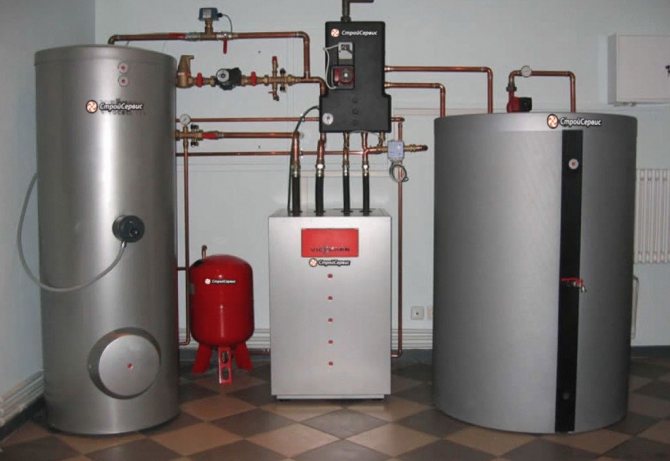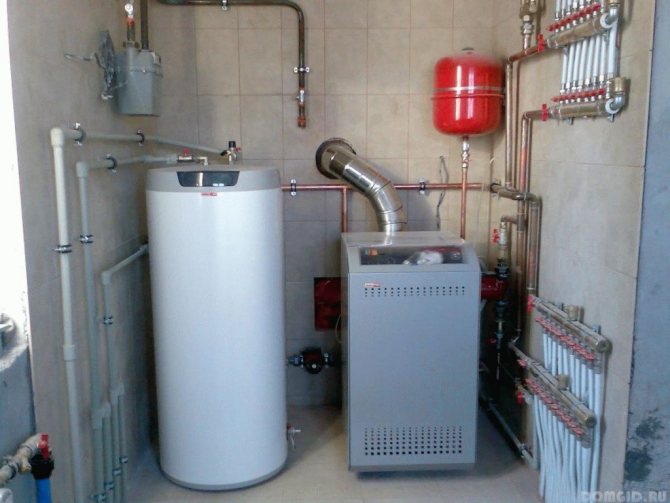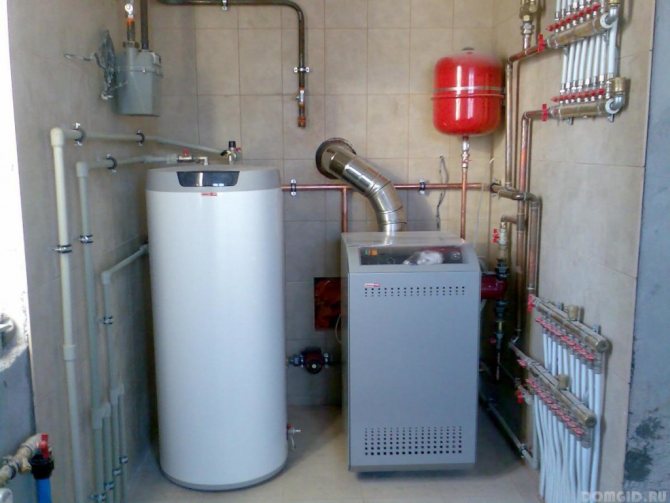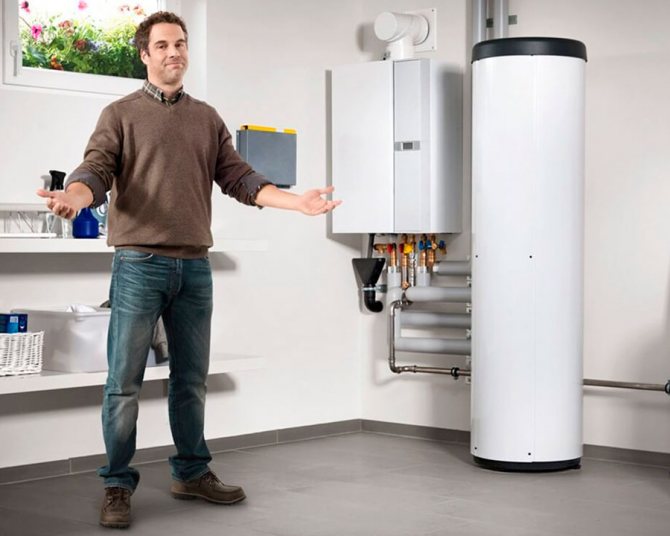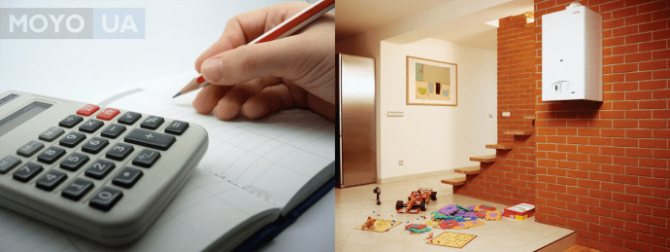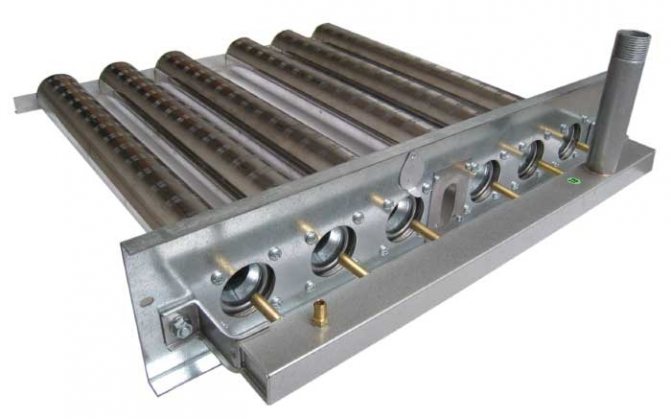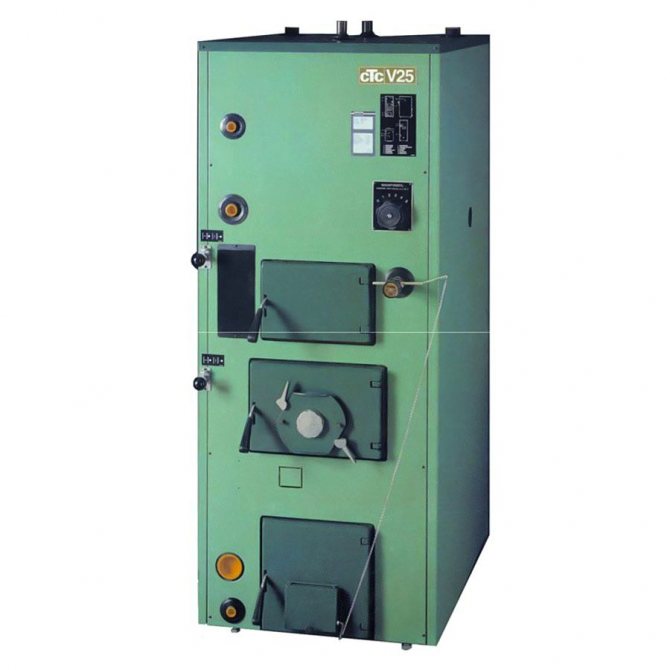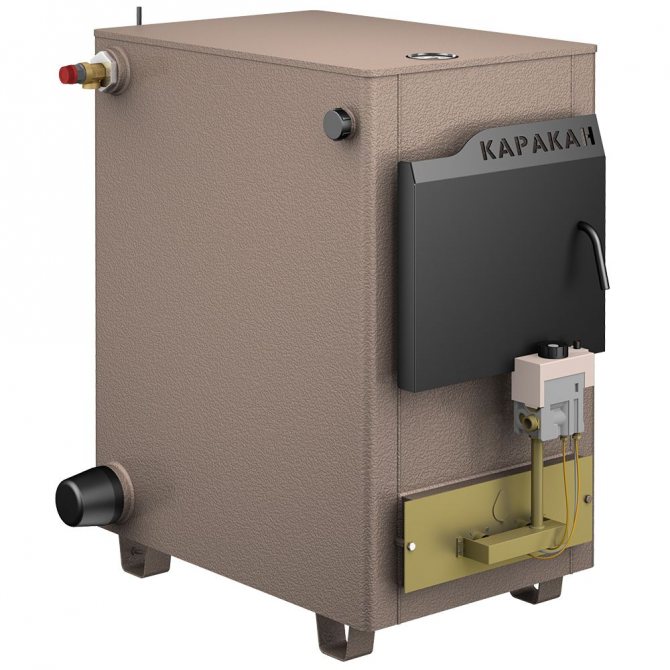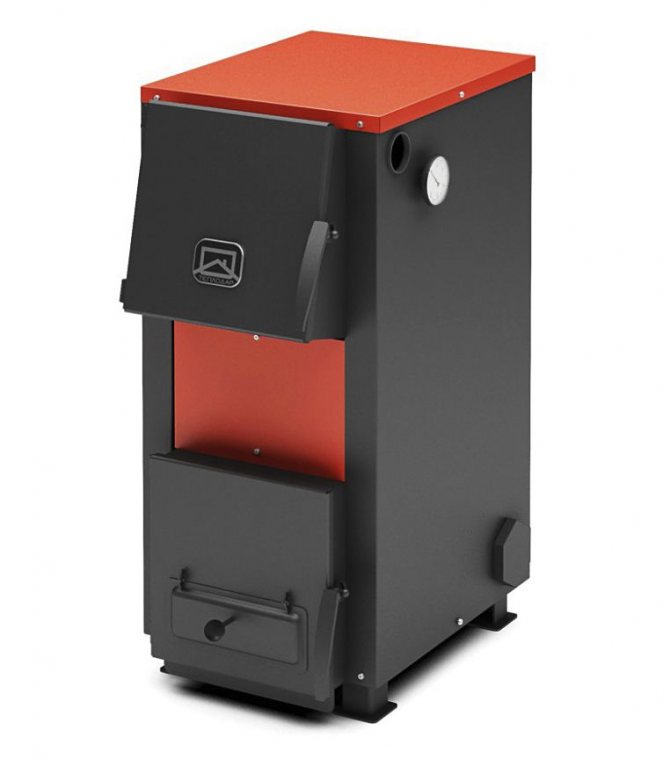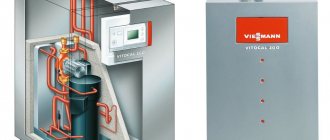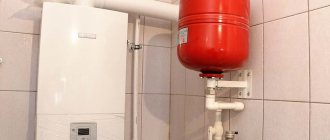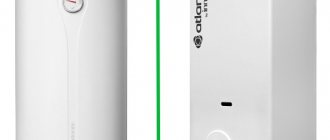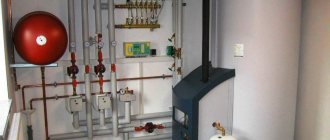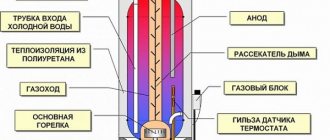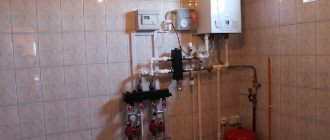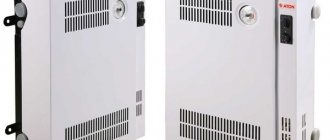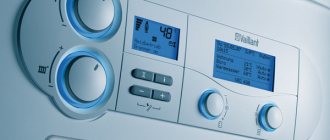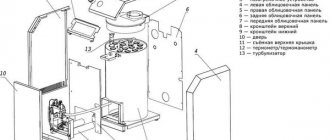When designing home heating, many people think about which boiler to choose - gas or electric? Despite the high cost of the units, they are very popular, because their work requires minimal human intervention.
If we compare gas and electric boilers with solid fuel, it can be noted that the latter option is not the most optimal. A solid fuel boiler needs constant supervision.
To maintain a constant temperature in the system, from time to time it is necessary to throw firewood or coal into a special compartment. When the question of the possible use of a solid fuel boiler disappears, a new complexity arises. Home owners are trying to figure out which is better in terms of efficiency and economy - gas or electricity?
To answer this question, it is necessary to compare the units, as well as make a technical calculation regarding installation and commissioning operations.
To perform the calculation, you should give answers to the following questions:
- How often do power outages occur?
- How much electricity does the boiler need to operate?
- What gas pressure is provided for the operation of gas units?
- What features does a particular residential facility have (type, footage, level of thermal insulation)?
- How many premises are you planning to heat?
- What are the requirements for the boiler?
- What type of heating is planned to be organized (only radiators, underfloor heating, combined, with the availability of hot water for domestic needs with the calculation of consumption per month for each resident)?
Based on this information, specialists will be able to decide which type of boiler is more profitable to install - gas or electric. Heating design includes budgeting, as well as making calculations of monthly costs, taking into account the selected energy carrier.
Views
The main element of the system is, of course, the heating boiler. Heating boilers for heating systems are classified according to the type of fuel used. It can be gas, solid fuel, liquid fuel, or electricity. Heating boilers differ in power, which is indicated in kW. Thus, you can choose a boiler for a small apartment and for a large house or office.
Household boilers produced by modern industry, thanks to built-in regulators, are distinguished by high efficiency and, due to complete combustion of fuel, are practically harmless to the environment. As a rule, such boilers are equipped with a number of additional equipment that performs the functions of heating water, forced circulation of the coolant and automatic control mode.
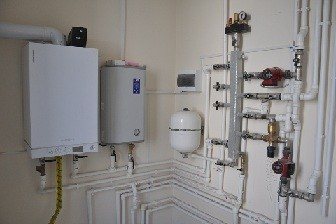
When choosing heating devices, several important factors must be taken into account.
In a radiator heating system, the room is heated by convection of warm air, therefore, a device such as a heating radiator should be as open as possible to ensure better convection in the room.
The most common heating devices are radiators. They can be cast iron, steel, bimetallic and aluminum.
Along with traditional systems, heating systems are beginning to be used, in which hot water pipes serve as a heating element, which are mounted in the floor screed. Underfloor heating has several advantages over traditional radiator systems. Such a system does not require strong heating of the coolant; to ensure a comfortable climate, a coolant temperature of 50-60 degrees is sufficient.This system provides a more uniform heating in the room.
Compare networks
- Electricity
- Gas
ELECTRICITY
The advantages of electric boilers:
- there is no need to constantly be at home during the operation of the device
- there is no need to organize additional communications
- shutdown "automatically" in case of problems with the power grid or exceeding the temperature regime
Before installing, you should find outthe state of the internal / external power grids. To study the characteristics of a transformer substation located near the house, to find out whether it can provide uninterrupted power supply and whether it will be possible to bring cables to it for organizing a three-phase 380 Volt line.
Residual current device
An electric boiler needs more powerful generators to heat, for example, a house with an area of 90 square meters. m. The consumption of such a unit, as a rule, is 6 kW. This indicates that the generator should be between 8 and 12 kW. (it is formed from the sum of the power of the device and some working electrical appliances).
In houses located in the outback, it knocks out traffic jams when consumption rises to 6-10 kW. Therefore, if you plan to install a 6 kW boiler, it is more expedient to equip it with a three-phase network.
GAS
Safety is the most important condition for the operation of any equipment. Unlike electric boilers, gas boilers are considered more dangerous. Even a small leak in the pipeline can be a prerequisite for a serious disaster. That is why gas communications are closely monitored by regulatory authorities.
Before installing the gas unit, you should find out:
- pressure level and what quality gas
- features and cost of connection
- the amount of time that may be needed to coordinate the work (from design to launch)
- how is the tie-in
When replacing gas equipment If you need to replace a gas boiler with an analogue, you should be ready to present a certificate for the unit and a heating system plan to specialists. Only then can the installation be carried out.
Note! Electricity is safer than gas, and therefore the procedure for organizing heating will require less paperwork, which will increase the speed of installation. As a rule, many homeowners are dissatisfied with the stability of the voltage.
It happens that the voltage disappears and may not appear for a long time. This feature puts the gas boiler in the first place, because such units are not so externally dependent. Therefore, to ensure uninterrupted operation of the heating system, it is additionally recommended to install a generator and batteries.
Ionic (electrode) heating boilers
Such devices heat the coolant by applying voltage through the electrodes, as a result of which the molecules are ionized and move to a conductor with a different polarity. In a single-phase network, one electrode is used in the form of a rod, the surface of a metal cylinder acts as the second, with three-phase voltage - 3 electrodes.
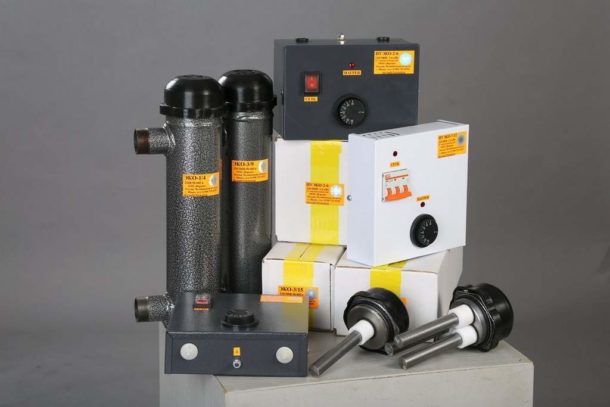

The sizes of ion boilers range from very small, capable of heating only one battery, to large installations designed for a large house. Available with or without housing.
Pros:
- compactness. The device takes up little space without a housing;
- high-speed heating of the coolant;
- low inertia, allowing very precise adjustment;
- resistance to voltage drops;
- a high level of safety - in the absence of a coolant in the boiler, it simply cannot work;
- low price (without control unit, pump and expansion tank).
Minuses:
- complete incompatibility with batteries made of steel and cast iron;
- exactingness to the quality of the circulating fluid, which must have a balanced composition. It is recommended not to do it yourself, but to purchase it ready-made;
- the need for a specialist to check the condition of the coolant before the new heating season;
- special requirements for the ground loop;
- heating temperature - no higher than 75 ° С;
- the need to replace the electrodes at regular intervals.
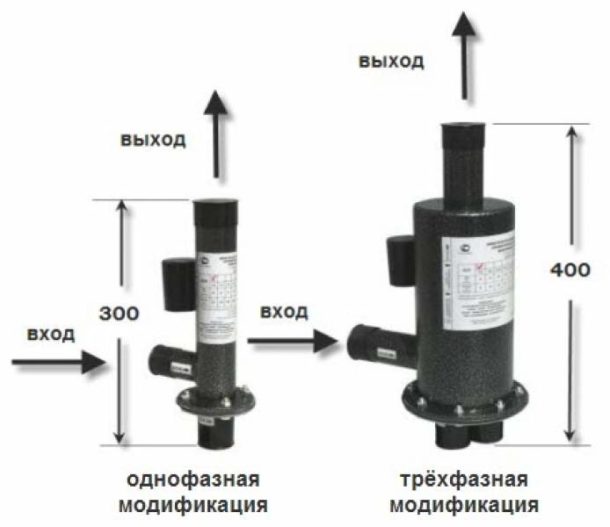

Boiler equipment
Heating systems built on different types of boilers practically do not differ in structure and element-wise components. For transportation and distribution of heat, identical pipes and radiators are used, as well as filters, air and exhaust vents. However, each of the boilers, whether gas or electric, undercuts certain installation work, maintenance, etc.
- Electric boiler
- Gas boiler
ELECTRIC BOILER
The electric unit includes a water heating element, a temperature control toggle switch and an automation. During installation, a ground loop is connected to it and equipped with a protective shutdown.
A heating system powered by electricity is simple and efficient. But in order to heat an area of 200 sq. m., consumption of 20 kW is required. Therefore, the electricity bill will undoubtedly make the owners appreciate the pros and cons of the system.
Electric boiler device
To save energy, experts recommend using a unit with a 2 or multi-tariff meter, as well as a storage tank. The device will not function around the clock, but only at night. This period will be used for intensive heating of water in a thermos tank.
Thus, it will be possible to maintain a comfortable temperature around the clock, while significantly saving. However, during severe frosts, such use becomes impossible.
The organization of the heating system, which implies the use of a boiler with a storage tank, will require serious initial investments, since it will be necessary to purchase a tank and lay complex wiring. Naturally, the result will be savings on payments, and as a result, a quick payback.
GAS BOILER
The installation of a natural gas boiler is associated with stringent requirements not only for installation, but also for operation. If the power of the unit is 30 kW, the area of the room in which it is installed should not exceed 7.5 cubic meters.
In turn, for a boiler of higher power, it is necessary to equip a separate room for the furnace - from 13 cubic meters.
The gas heating system is built on the principle of combustion, and therefore requires chimneys, which leads to an increase in heat loss.
Gas boiler device
Gas fired boilers are divided into:
- conventional with 90% efficiency
- condensing with 110% efficiency
Modern gas boilers are equipped with more sophisticated automation than electric ones. But, one should not forget - in order to extend the service life of the device, it is necessary to regularly invite specialists from service centers to inspect and carry out preventive work.
Should be considered
Gas has a detrimental effect on the gum, from which they quickly dry out and become hard. As a result, these elements cease to fulfill their main purpose - to prevent leakage. In addition, the copper heat exchangers in the gas boiler need to be flushed about once every 2 years.
This is a common problem for owners whose homes are located far from regional centers. The point here is in the water produced from the wells. It contains a large amount of salt. Over time, they settle on the tube walls, resulting in lower and less efficient heating of the tubes in the burner.
Wall mounted gas
Wall mounted gas boilers are the result of progress in the field of heating equipment.All the latest developments in the field of heating equipment appeared in these devices. In this seemingly small building, everything that is necessary for the operation of the heating system is concentrated, and a lot of residents of our country choose a boiler of this type.
Wall-mounted boilers are produced with natural draft, when the combustion products are removed through the chimney and with forced draft, when the combustion products are removed by means of a built-in fan. Such boilers do not need a separate chimney, it is enough to just make a hole in the wall and remove the combustion products using a corrugated pipe.
Wall-mounted boilers are characterized by a rather simple installation and a lower price compared to floor-standing boilers. This class of boilers fits into any interior without violating any rules and regulations. Compactness allows you to place this unit in a very small space.
Almost all modern wall-hung boilers are equipped with automatic devices that ensure their safe operation. This list includes temperature sensors, flame sensors, traction control sensor, etc.
The power of wall-mounted gas boilers varies from 12 to 42 kW, which allows them to be used both for small apartments and for country houses. In addition, wall-mounted gas boilers are quite economical, their use can reduce gas consumption several times compared to centralized heating systems.
What is more profitable?
The efficiency of boiler rooms depends on the quality of the equipment installed in it. As a rule, homeowners do not want to take part in the maintenance of the heating system. The decisive factor for choosing an electric or gas boiler is efficiency.
If we talk about the price of modern models that run on electricity or gas, the cost of the devices is practically at the same level. The service itself is important here. Gas units will be constantly under the control of specialists, which cannot be said about electrical appliances, because no one will check their serviceability. They are the safest.
As for the monthly costs for electricity or gas, they will depend on the region where the house is located, as well as on the amount of fuel consumed.
